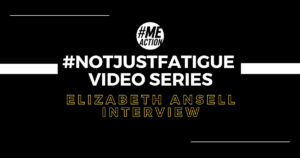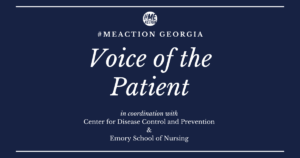Five professors of science and mathematics, including Professor Ron Davis of Stanford University, have written to PLoS One demanding the correction of an “inaccurate claim” central to a PACE trial paper on cost-effectiveness that was published in the journal in 2012.
Referring to a series of articles by Dr. David Tuller criticizing the PACE trial, the letter states, “Among Dr. Tuller’s findings: the main claim of the PLoS One paper—that cognitive behavior therapy and graded exercise therapy are cost-effective treatments—is wrong… The PACE authors have repeatedly cited this inaccurate claim of cost-effectiveness to justify their continued promotion of these interventions.” Dr. Tuller’s investigation into PACE’s flaws is ongoing.
While there are a number of well-known flaws in the PACE trial, it was ME/CFS patients Simon McGrath and Tom Kindlon who pointed out an aspect of PACE’s presentation of CBT and GET as cost-effective therapies they found troubling: in order to reach this conclusion, the researchers had to value the home care that the patient’s family so often provides at minimum wage – or worse, as being worth nothing at all.
If the home care is estimated to be worth the same as a skilled home care worker might provide, McGrath and Kindlon maintained, the monetary advantage disappears.
Professor Paul McCrone, the paper’s lead author, appeared to concede the point in an online response but failed to correct the paper.
The academics’ letter says that if Professor McCrone cannot account for the discrepancy between the paper’s claims and his own subsequent comments, then either he must correct the paper or PLoS One must do so. The letter notes that PLoS One were notified about the issue by Dr. Tuller in the fall but have failed to act.
In addition to Professor Davis, the open letter was also signed by Professors Rebecca Goldin (mathematician, George Mason University), Bruce Levin and Vincent Racaniello (biostatistician and virologist, respectively, both Columbia University) and Arthur Reingold (epidemiologist, University of California, Berkeley).
Meanwhile, a request made over six months ago by Professor James Coyne of Pennsylvania University for the raw data underlying the same PLoS One paper has still not been met. He has stated, “I am losing patience with PLoS. My confidence in their commitment to data sharing is faltering.”
He added, “It may be too early to act, but is not too early to begin planning an action in which academic editors, the reviewers on whom they depend, and the authors who submit papers avoid involvement with PLOS One for a month.”
For an overview of the PACE trial, consult its MEpedia page.

#NotJustFatigue Video Series: Interview with Creator Elizabeth Ansell
Over the past year, the #NotJustFatigue website, created by Elizabeth Ansell, releases a 10-part, documentary style, short form video series on different aspects involved in living with ME. Titles of the videos include topics such as: You Have No Idea How Serious This Is, Nobody Believes ME, and It’s Not Hysteria: It’s Sexism. In these





2 thoughts on “Scientists write open letter to PLoS One”
My daughter has had this dreadful illness for 23 years, since she had glandular fever at eleven years of age. She never recovered. She had a scholarship to a public school and was a clever, enthusiastic girl. Yet she was sent to a psychologist and a psychiatrist and accused of being school phobic?! Rubbish! She was thrilled to be at the school until the M E struck. She was diagnosed by the pediatrician at Llandough hospital, after about 8 months. She was exhausted all the time, had difficulty sleeping, was in awful pain and even a conversation was difficult. She could not concentrate, had terrible nightmares and then migraine headaches started.
M tried to return to school on better days, but would collapse and have to be brought home. Eventually she had to leave school and return to the state system in order to receive Home Tutors. She could barely get out of bed, let alone concentrate on lessons. Things improved a little over time, though her energy fluctuated. She returned to the local comprehensive, part-time at age 13 and did well for a couple of months, but after taking part in sport later, she collapsed and was very ill for months after. This was the last time she went to school. After a couple of years, she went to see Dr Llewellyn at the then M E Clinic in UHW. G E T was prescribed. M and I (I suppose to encourage her?) were put on exercise bikes and rowing machines and told that it would get her well. She collapsed when she got home and was very ill again for months after.
I help to run a support group for people with M E. After talking to many of our members, I discovered that they had similar treatment and had suffered badly. G E T is very damaging to people with moderate to severe M E. How it ever came to be a treatment, I will never understand.
Various private research in different parts of the USA, are finding that virus’s are responsible for the illness, and doctors are treating people quite successfully in a number of cases. Even an American psychiatrist is treating his M E patients with anti-virals!
Governments need to wake up to the reality that M E is NOT psychological and serious research and collabaration between countries are needed.
There are so many very sick, bedridden people suffering, without any hope of treatment. It doesn’t last for weeks or months, but YEARS and MANY YEARS.
Deirdre – you rightly say:
“G E T is very damaging to people with moderate to severe M E. How it ever came to be a treatment, I will never understand.”
GET is indeed highly damaging, but to understand how it came to be promoted, along with CBT, as the only mainstream “treatments” on offer, you really have to understand the murky politics surrounding ME, the role of private health insurance industry and governments wanting to cut social security benefits. The associated role of a cabal of behavioural pschiatrists with links to these, in promoting GET etc. and ensuring that proper biomedical research has been woefully underfunded for decades.
http://www.centreforwelfarereform.org/news/misleading-mability-cuts/00270.html
http://www.meactionuk.org.uk/Response-to-Dr-Stuart-Spencer.htm
http://www.virology.ws/2015/10/21/trial-by-error-i/
Comments are closed.